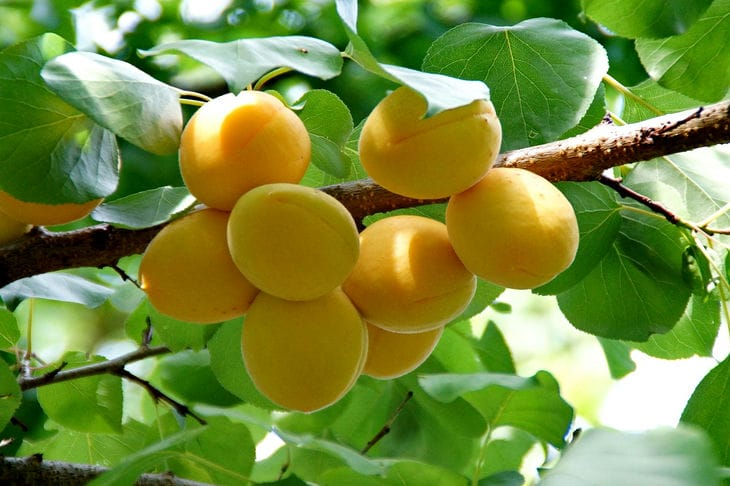Apricot is a favorite of gardeners, delighting with juicy and aromatic fruits.
However, sometimes this sunny tree refuses to give its sweet gifts, leaving its owners perplexed.
The answer lies in the specifics of care and external factors that influence fruiting.
Age and type of tree
Young apricot trees are not capable of bearing fruit in the first years of life. Fruiting usually begins 3-5 years after planting, depending on the variety and growing conditions.
Some apricot varieties are late in bearing fruit, which can be a concern for gardeners. It is important to make sure that the variety you choose is suitable for the climate conditions of the region.

Adverse weather conditions
Apricot is sensitive to weather conditions. Spring frosts can damage flower buds, preventing the tree from setting fruit.
Strong winds and prolonged rains during flowering prevent pollination, which also leads to a lack of harvest. Hot and dry summers can cause the ovaries to fall off, leaving the branches empty.
Lack of pollination
For successful fruiting, apricots require cross-pollination.
If there are no other apricot trees or pollinating insects nearby, pollination may be difficult. Using bee-attracting products or hand pollination may help solve this problem.
Incorrect pruning
Pruning plays a key role in crop formation. Too much pruning can lead to excessive growth of vegetative shoots to the detriment of fruit shoots.
On the other hand, lack of pruning leads to thickening of the crown, which worsens illumination and reduces fruiting.
Nutrition and watering disorders
Apricot is demanding in terms of nutrition and water regime. Lack or excess of moisture negatively affects fruiting.
Nutrient deficiencies, especially nitrogen, phosphorus and potassium, can result in poor flowering and fruit drop. It is important to maintain a balance in fertilizing, avoiding excess nitrogen, which stimulates foliage growth at the expense of fruiting.
Diseases and pests
Various diseases and pests can significantly reduce the yield of apricots. Moniliosis, clasterosporium and other fungal infections affect flowers and ovaries.
Aphids, codling moths and other insect pests can destroy a significant part of the harvest. Regular preventive treatments will help protect the tree from these misfortunes.
Age related problems
Old apricot trees may lose their ability to bear fruit. With age, the intensity of metabolic processes decreases, and the transport of nutrients deteriorates. Rejuvenating pruning and increased care can extend the productive period of the tree.
In order for the apricot to bear fruit every year, it is necessary to provide it with comprehensive care. Carefully observe the tree, care for it correctly and promptly solve any problems that arise.








